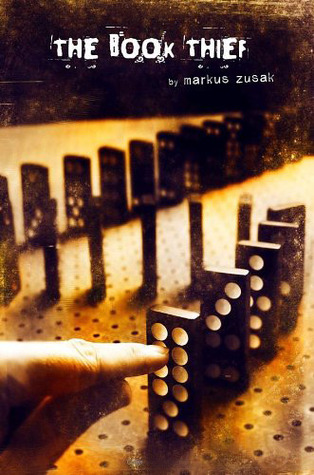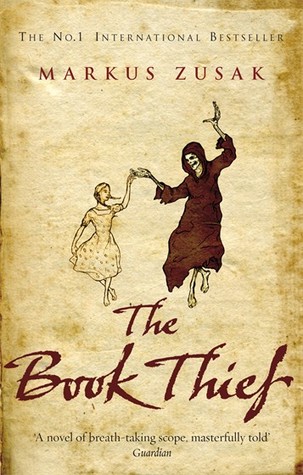"How do you know?" Was the incredulous response.
"I heard it on the radio!"
This is the true story of how an American radio drama ignited doomful terror of an alien invasion in the hearts of thousands of listeners.
Its been dubbed the "Panic Broadcast" - "the greatest invasion that never happened."
~*~
1938 was a year of tension and tribulation.The Great Depression persisted to hold America in its iron grip, and Nazis Germany had "annexed" Austria, continuing to grow in power and hostility. Hitler's obdurate speeches, given in a state of fanaticism, and the realities of the economy were heard not just as distant threats in the papers, but as undeniable events welcomed over the airwaves by American (and Canadian) citizens into the intimacy of their family circles and homes. News bulletins were daily increasing, interrupting the soothing rhythm of the radio programs.
Radios were a sensational pieces of entertainment and information. Despite the United State's economic low, its been calculated that 80% of American's owned a radio! People were finding it extremely difficult to buy the necessities of life. They were searching for work and pawning off valuables, and yet they zealously treasured their radios.
In New York, The Mercury Theatre on the Air was preparing something special for their eager listeners under the astute direction of one of its founders, Orson Welles, the twenty-three year old "Broadway theatrical prodigy."
The Theatre's radio productions had thus far been one hour shows based on popular literature, including Treasure Island, A Tale of Two Cities, and Around the World in Eighty Days. This latest one - to be aired October 30, the eve of Halloween - was to be no different. But as the writers and directors prepared the script, some argued that it would fail to capture the audience's attention. That it was boring.
So they brainstormed some more, and it was in the frantic last few days before the deadline, that Welles suggested that it be performed as a series of news bulletins, recounted seemingly from the eyewitness accounts of journalists and reporters.
The story was based off of H. G. Wells' 1897 novel, The World of the Worlds, about a Martian invasion of England.
They had Americanized the setting and liberally altered the characters and conversations, but the pith of the story was left untouched.
As the theatre group went live on air, the announcer introduced the story, obviously stating that the show was a drama, and then Welles himself commenced the story with a narration. Then...
"Ladies and gentlemen, we interrupt our program of dance music to bring you a special bulletin from the Intercontinental Radio News... Professor Farrell of the Mount Jennings Observatory, Chicago, Illinois, reports observing several explosions of incandescent gas, occurring at regular intervals on the planet Mars."An interview with another Professor about these abnormal occurrences further interrupts the music, and a news bulletin takes the listeners to the scene of a strange landing. A place which the script writers chose at random on a map of the U.S.
"We are bringing you an eyewitness account of what's happening on the Wilmuth farm, Grovers Mill, New Jersey. Ladies and gentlemen, this is the most terrifying thing I have ever witnessed! Something wriggling out of the shadow like a gray snake. Now it's another one, and another. They look like tentacles to me."To put it simply, the War of the World's was a genius radio production with exceptional acting and directing.
The aliens begin their attack...
"Now the whole fields on fire - the woods, the barns, the - the gas tanks of the automobiles. It's spreading everywhere. Its coming this way now, about twenty yards to my right - "
And just like that, the mic went dead. All you could hear was static.This was a brilliantly improvised moment! Welles shot his hands up in the air like a conductor, and the actors and orchestra went silent.
No one in the recording studio knew the affect they were having on their fellow countrymen.
Its interesting how the human mind works. People heard that aliens were attacking with poison gas, so they saw and smelt gas. The aliens were beginning to bomb the area surrounding Grover's Mill, so they heard and saw bombings, no matter how far away they lived from the supposed catastrophe.
Fear is an irrational thing - but it also reveals truth about the times, and the hearts of individuals. Roosevelt understood this when he spoke his famous words in his inaugural address in 1933 - the very doldrums of the Depressions.
Between 8:30 and 10:00 pm on the night of the broadcast, a Jersey Police log recorded "at least 50 calls...persons inquiring as to meteors, number of person's dead, gas attacks, militia being called..."
On the morning following the broadcast, the Trenton Times were overflowing with accounts of hysteria. There were (tragically) reports of suicide, nurses were seen praying in the streets, "one Hamilton Township woman vowed she had stuffed all the doors and windows with paper and wet rags but that the fumes were already seeping into her living room," whole families packed up their precious belongings and drove into the countryside or hid in their cellars, and ironically, a town in Washington State suffered from a power outage on the same night, causing everyone to believe it was a result of the alien's assault.
We learn about these seemingly idiotic responses and laugh at the people's naivety, but I doubt whether we would have been laughing in 1938.
The broadcast demonstrated the power of radio and propaganda. Journalist Dorothy Thompson states it well:
With the conclusion of their live production, Houseman, one of the theatre's founding members says, "the following hours were a nightmare." Swarmed by police and the press, an investigation was put in place. Though Welles was sorry for the damage to the morale and livelihood of his fellow Americans he couldn't help but be pleased with his success. His radio show had made front page news all over the country (and beyond)!
The War of the World's broadcast aired over seventy years ago to listeners of a very different generation, but it's intriguing historical events like this one that remind me of our common humanity, and, unfortunately, our tendency to fear first and think after. We still listen and watch world events with trepidation, and wonder diffidently what the future may hold. But we don't have to live in fear, for we are not alone; we have a conqueror in Christ! "In the world you will have tribulation. But take heart; I have overcome the world" (John 16:33).
I highly suggest listening to the original broadcast! I've included a link to it here!
Resources:
American Experience - War of the World's: http://www.pbs.org/wgbh/americanexperience/films/worlds/player/
The War of the World's script: http://www.sacred-texts.com/ufo/mars/wow.htm
Trenton Times newspaper articles: http://www.war-ofthe-worlds.co.uk/documents.htm#orson
Franklin Roosevelt's speech: http://historymatters.gmu.edu/d/5057/
No one in the recording studio knew the affect they were having on their fellow countrymen.
Its interesting how the human mind works. People heard that aliens were attacking with poison gas, so they saw and smelt gas. The aliens were beginning to bomb the area surrounding Grover's Mill, so they heard and saw bombings, no matter how far away they lived from the supposed catastrophe.
Fear is an irrational thing - but it also reveals truth about the times, and the hearts of individuals. Roosevelt understood this when he spoke his famous words in his inaugural address in 1933 - the very doldrums of the Depressions.
"Let me assert my firm belief that the only thing we have to fear is fear itself... nameless, unreasoning, unjustifiable terror which paralyzes needed effort to convert retreat into advance."Many people hadn't heard the drama's announcer introduce the theatrical nature of the story, the majority has been listening to another station featuring a ventriloquist and his puppet Charlie McCarthy, and after some dial twisting during a musical interlude (much like channel surfing during advertisements), had stumbled upon a "news flash" informing them - it seemed in all sincerity - of a martian landing and attack. They missed the introduction, or they dismissed the important opening words in light of the realistic quality of the play, and by the time Welles paused for the interlude and reintroduction of the performance, people were fleeing for their lives!
Between 8:30 and 10:00 pm on the night of the broadcast, a Jersey Police log recorded "at least 50 calls...persons inquiring as to meteors, number of person's dead, gas attacks, militia being called..."
On the morning following the broadcast, the Trenton Times were overflowing with accounts of hysteria. There were (tragically) reports of suicide, nurses were seen praying in the streets, "one Hamilton Township woman vowed she had stuffed all the doors and windows with paper and wet rags but that the fumes were already seeping into her living room," whole families packed up their precious belongings and drove into the countryside or hid in their cellars, and ironically, a town in Washington State suffered from a power outage on the same night, causing everyone to believe it was a result of the alien's assault.
"The panic reached its peak in the metropolitan New York section. Unaware of the fiction of what they had heard, thousands rushed into the streets and parks, spreading their infectious alarm as they milled around, waiting for destruction to overtake them."
We learn about these seemingly idiotic responses and laugh at the people's naivety, but I doubt whether we would have been laughing in 1938.
The broadcast demonstrated the power of radio and propaganda. Journalist Dorothy Thompson states it well:
"Hitler managed to scare all Europe to its knees a month ago, but at least he had an army and an air force to back up his shrieking words... Mr. Welles scared thousands into demoralization with nothing at all..."The following cartoon sums it up perfectly!
With the conclusion of their live production, Houseman, one of the theatre's founding members says, "the following hours were a nightmare." Swarmed by police and the press, an investigation was put in place. Though Welles was sorry for the damage to the morale and livelihood of his fellow Americans he couldn't help but be pleased with his success. His radio show had made front page news all over the country (and beyond)!
The War of the World's broadcast aired over seventy years ago to listeners of a very different generation, but it's intriguing historical events like this one that remind me of our common humanity, and, unfortunately, our tendency to fear first and think after. We still listen and watch world events with trepidation, and wonder diffidently what the future may hold. But we don't have to live in fear, for we are not alone; we have a conqueror in Christ! "In the world you will have tribulation. But take heart; I have overcome the world" (John 16:33).
I highly suggest listening to the original broadcast! I've included a link to it here!
Resources:
American Experience - War of the World's: http://www.pbs.org/wgbh/americanexperience/films/worlds/player/
The War of the World's script: http://www.sacred-texts.com/ufo/mars/wow.htm
Trenton Times newspaper articles: http://www.war-ofthe-worlds.co.uk/documents.htm#orson
Franklin Roosevelt's speech: http://historymatters.gmu.edu/d/5057/










